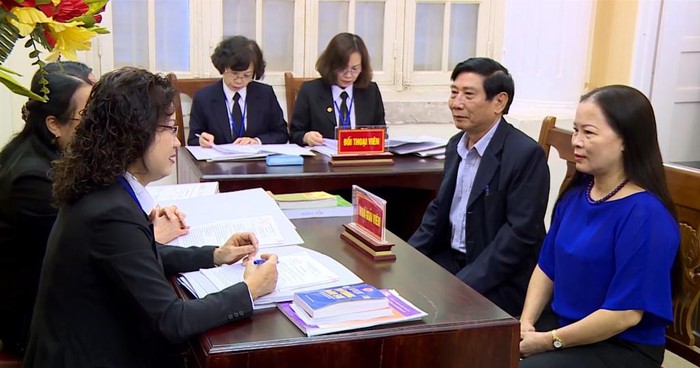This is a notable provision in the 4th Draft of the Law on Mediation and Dialogue at Courts currently being solicited for opinions.

Illustrative Photo
To ensure the principle that all information related to the mediation and dialogue process must be kept confidential as stipulated in Article 4 of the Law on Mediation and Dialogue at the Court, this fourth Draft specifies that during the mediation and dialogue process, recording, videotaping, or taking minutes of the mediation and dialogue are not allowed.
To be specific, Clause 2 of Article 4 of the fourth Draft of the Law on Mediation and Dialogue at the Court stipulates:
2. During the mediation and dialogue process, recording, videotaping, and taking minutes of the mediation and dialogue are not allowed. The creation of records is only permitted to document the results of the mediation and dialogue as stipulated in Article 28 of this Law. Mediators and parties participating in the mediation and dialogue may take notes to serve the mediation and dialogue process but must keep the content confidential.
Thus, if this Draft is approved in the near future, the mediation process at the Court will be officially legalized, with specific legal documents to regulate it. Additionally, establishing Information Confidentiality as a statutory principle reflects a very progressive view of the National Assembly. Currently, the mediation at the Court is only regulated in certain articles of the 2015 Civil Procedure Code, and the principle of mediation is still quite rudimentary and does not address the issue of Information Confidentiality.
Moreover, Article 4 of this Draft also prescribes other information confidentiality issues that participants in the mediation and dialogue must comply with:
- Mediators, parties participating in the mediation and dialogue, agencies, organizations, and individuals invited to participate in the mediation and dialogue must not disclose any information they learn during the mediation and dialogue process unless consent is given by the party providing the information.- Agencies, organizations, and individuals must not use the statements of parties in the mediation and dialogue process as evidence in the case resolution process according to the law, except in the following cases:- The party making the statement agrees to use their statements in the mediation and dialogue process as evidence;- The use of the statement as evidence is required by law.- Agencies, organizations, and individuals violating the provisions of Clauses 1, 2, and 3 of Article 4 will be handled according to legal regulations.
View the detailed content of the Draft HERE.
Toan Trung
 Article table of contents
Article table of contents





.Medium.png)
.Medium.png)
.Medium.png)
.Medium.png)
